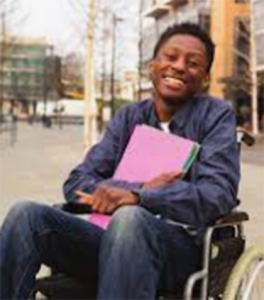Diverse communities missing out on disability support
The National Disability Insurance Scheme Insurance Scheme (NDIS) is too complex and too inflexible for many people from diverse backgrounds, multicultural agencies say.
And disability support agencies say stigma around disability must also be addressed if CALD participation rates within the NDIS are to improve.
 Disability Advocacy and Complaints Service worker Kendall Field said the NDIS was “far too complex, legalistic and inflexible”.
Disability Advocacy and Complaints Service worker Kendall Field said the NDIS was “far too complex, legalistic and inflexible”.
She said that support needed to be sustained and constant.
“People from culturally and linguistically diverse backgrounds need help not only to access the system but to navigate it,” Ms Field said.
“Interpreters should be engaged at every stage so people interacting with the system are well informed and can make an informed decision,” she said.
South Sudanese community leader Jusphine Onzi, says it took more than a year and two failed attempts to get her son Thiik an NDIS plan after he was diagnosed with non-verbal autism.
But despite describing that process as “very difficult”, she said the main barrier she faced was cultural.
“There is little disability awareness within our community. Back home, any person who has a disability … most families disown them,” she said.
“Some people say why don’t I get a carer or why don’t I give him to the government? I’m like, ‘Why though? He’s my child’,” she said.
Recently, migrant and refugee settlement agency AMES Australia has been successful in registering as an NDIS provider.
Currently, CALD people with disabilities make up only 8 per cent of NDIS participation although it is estimated that CALD participation should be around 21 per cent.
This indicates that there are barriers to access and lower rates of utilisation of disability services among CALD communities.
AMES CEO Cath Scarth said the organisation was committed to increasing this participation by providing culturally appropriate disability services.
There are around 4.3 million Australians who have a disability. Within the next five years, the National Disability Insurance Scheme (NDIS) will provide more than $22 billion in funding each year to an estimated 500,000 Australians who have permanent and significant disability. For many people, it will be the first time they receive the disability support they need.
In a statement, NDIS Minister Linda Reynolds said both she and the agency responsible for overseeing the scheme recognised the challenges experienced by people from CALD backgrounds and that further work is required to improve their engagement with the scheme.
“The NDIA has a deep commitment to work alongside CALD people in a respectful and inclusive way, which is reaffirmed in its Cultural and Linguistic Diversity Strategy,” Ms Reynolds said.












